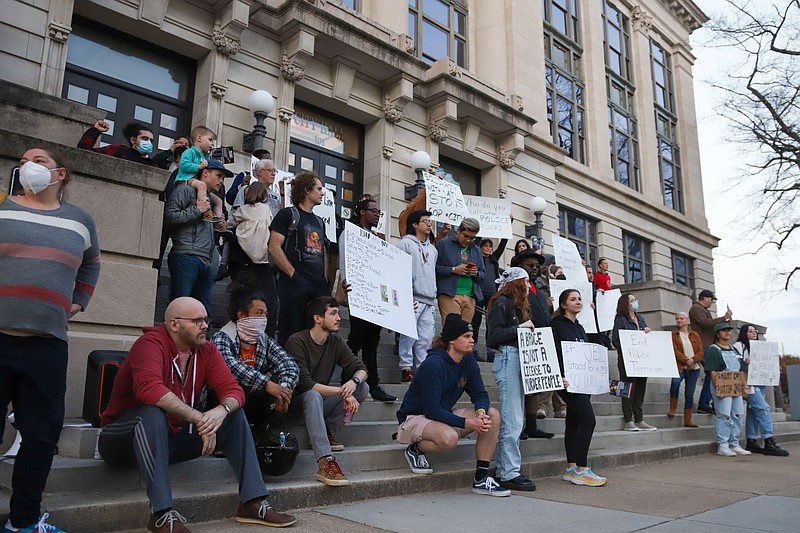Today's $64,000 question is how we as Americans can regain the sense of proportion we once seemed to have over how to frame our thoughts and reactions over an issue.
We're thinking specifically about the brutal and deadly assault by five Black Memphis policemen on a Black man they had pulled over last month and of the horribly racist video made several months ago by two students at McCallie School.
We don't excuse either.
Indeed, the Memphis police officers have been dismissed from the squad and charged with murder, and the McCallie students have been expelled from school. The officers will have their day in court, and the students will not get the chance to get an education at the top academic school they once attended.
Both incidents also deserve an examination, by the Memphis police administration and by McCallie School, to determine if anything in their culture, in any of their training, in any way sanctioned what happened.
It also would behoove the five former policemen and the two former students to do some soul searching to understand what in their own makeup sanctioned such immoral behavior.
And, yes, national conversations are worth having over police culture and over the sin of racism.
But we wonder how all law enforcement officers have come to be thought of as evil killing machines and about how a school like McCallie would be thought of as a hotbed of racist students.
We think back on two incidents, one school related and one career related, and how both were handled.
In the first, it used to make us furious when elementary school teachers would call out the class, or threaten to punish the class, over the excessive talking or juvenile antics of a couple of students. Undoubtedly, the threat was supposed to make the rest of us think twice before misbehaving, but it only seemed to spread the guilt over to the innocent. Why could the perpetrators not have been called aside and told that such behavior wouldn't be tolerated?
In the second, we recall perhaps 15 to 20 years ago when members of a hate group planned to rally at the Hamilton County Courthouse. This newspaper's management at the time chose to ignore the protest -- not to give it the exposure its members so desperately wanted. The rally, best that we recall, fizzled or was but a blip on the radar screen. Had it been covered, it might have sown more rallies, counter rallies and, potentially, a physical clash.
Both incidents were in the era before camera phones and social media made sharing the results of anything with the rest of the world, with context or usually without, as simple as the pressing of a few buttons.
With such sharing, a hate group's fizzled-out rally suddenly could have become a coordinated attack on the Black population of Chattanooga. Thus, a police stop in Memphis by five Black men on a Black man did revive demands to defund law enforcement. A video by two knuckleheaded students did elicit calls for an entire school to apologize for, what? -- for enrolling the students? for taking their parents' money? for not knowing that they one day could start spewing hate?
The Memphis incident has spawned protests, including one in Chattanooga, that harkened to the rallies, lootings and bombings across the country following the death of George Floyd at the hands of Minneapolis police officers in the COVID-scarred late spring and summer of 2020.
Even though the circumstances were vastly different (and are still being investigated for what may be intensely personal connections among those involved), the local protesters held signs that complained of "police terrorism" and made statements that called for "abolition" of the police. And this just when the country again had come to understand how important police are and how much those who are said to be oppressed don't want the police defunded.
Similarly, when all extant evidence is of a McCallie School that is tolerant and inclusive, to suggest -- as activist and former Chattanooga City Council candidate Marie Mott did -- that the video is indicative of "a comfortable [racist] culture" at the school and an institution that is "too silent" on racial incidents and that the school owes the city an apology is flat out wrong.
We would not have these incidents swept under the rug, nor ignore local and national lessons that could come out of them. But to continue to paint with a broad brush only perpetuates lies, stokes anger and further divides a nation. That's the last thing we should be doing in an already polarized country.
We like what priest and spirituality author Richard Rohr said about the proportion we mentioned at the outset.
"Invariably when something upsets you," he said, "and you have a strong emotional reaction out of proportion to the moment, your shadow self has just been exposed. So watch for any overreactions or overdenials."
